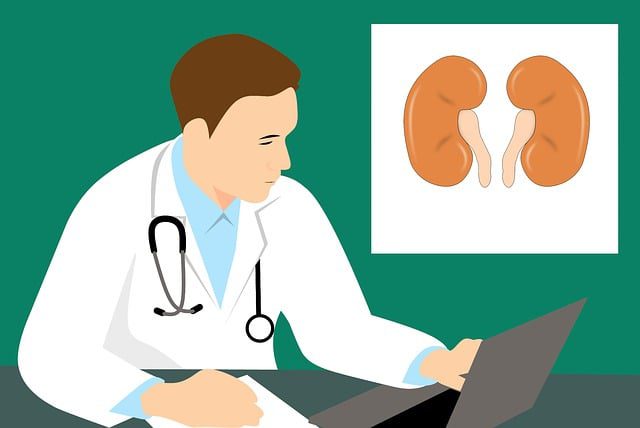The urinary tract is a complex system comprising the kidneys, bladder, and urethra. It plays a vital role in filtering waste products and excess water from the bloodstream, producing urine, and ultimately, eliminating it from the body. However, the urinary tract is susceptible to infections that can cause discomfort and serious complications if left untreated. This article aims to help you identify whether you have a kidney infection or a urinary tract infection (UTI) and provide valuable information on prevention and treatment.
Table of Contents
Urinary Tract Infections: Causes and Symptoms
Usually, individuals have misinformation as to what causes a UTI. Several factors can contribute to the development of urinary tract infections. These infections are a common health issue affecting millions of people worldwide. They occur when bacteria, typically Escherichia coli (E. coli), enter the urinary tract and multiply, causing inflammation and infection. UTIs can affect any part of the urinary tract, but the most common types are cystitis, an infection of the bladder, and urethritis, an infection of the urethra.
UTI Risk Factors
Women are more prone to developing UTIs than men, primarily due to the shorter distance between the female urethra and anus. This anatomical difference makes it easier for bacteria to enter the urethra and travel up to the bladder. Additionally, sexual activity can introduce bacteria into the urethra, leading to infection.
While E. coli is the leading cause of UTIs, sexually transmitted infections (STIs) such as chlamydia and gonorrhea can also result in urethritis. Other factors that increase the risk of developing a UTI include a weakened immune system, urinary tract abnormalities, urinary retention, and the use of urinary catheters.
Recognizing UTI Symptoms
UTI symptoms can range from mild to severe and may include the following:
- Painful or burning sensation during urination
- Frequent need to urinate, often producing only small amounts of urine
- Cloudy, dark, or foul-smelling urine
- The feeling of pressure or pain in the lower abdomen or back
- Low-grade fever
- Fatigue
Kidney Infections: Causes and Complications
A kidney infection, also known as pyelonephritis, occurs when a UTI spreads upward from the bladder into the kidneys. This type of infection can be potentially dangerous and may lead to serious complications, such as kidney damage and sepsis, a life-threatening response to infection.
Kidney Infection Symptoms
In addition to the general symptoms of a UTI, kidney infection symptoms can include the following:
- High fever
- Chills
- Nausea and vomiting
- Severe back or side pain, usually located below the rib cage
- Confusion or disorientation, particularly in elderly individuals
Diagnosing UTIs and Kidney Infections
A healthcare professional can diagnose a UTI by analyzing a urine sample for the presence of bacteria, blood, or pus. In some cases, a urine culture may be performed to identify the specific bacteria causing the infection and determine the most effective antibiotic treatment.
To diagnose a kidney infection, a healthcare provider may use additional tests such as blood tests, imaging studies (ultrasound, computed tomography (CT) scan, magnetic resonance imaging (MRI)), or a kidney biopsy.
Treating UTIs and Kidney Infections with Antibiotics
Antibiotics are the primary treatment for UTIs and kidney infections. The specific antibiotic prescribed and the duration of treatment will depend on the severity of the infection and the patient’s overall health. In general, UTIs are treated for 3 to 7 days, while kidney infections may require a more extended treatment period of 7 to 14 days. It is crucial to complete the entire course of antibiotics, even if symptoms improve before the medication is finished, to ensure the infection is eradicated and to reduce the risk of antibiotic resistance.
In severe cases, particularly when a kidney infection is suspected, hospitalization may be necessary to administer intravenous antibiotics and fluids. Pain relievers and fever-reducing medications may also be prescribed to alleviate discomfort and manage symptoms.
Preventing UTIs and Kidney Infections
While it may not be possible to prevent all UTIs and kidney infections, there are several steps you can take to minimize your risk:
- Drink plenty of fluids: Staying well-hydrated helps flush bacteria from the urinary tract and dilute urine, reducing the risk of infection.
- Wipe from front to back: Proper hygiene is essential to prevent the spread of bacteria. Women should always wipe from front to back after using the toilet to reduce the risk of transferring bacteria from the anus to the urethra.
- Urinate after sexual activity: Emptying the bladder after intercourse can help flush out bacteria that may have been introduced during sex.
- Maintain good hygiene: Keep the genital area clean and dry, and choose cotton underwear, which allows for better airflow and moisture absorption.
- Avoid irritants: Limit the use of irritating products such as harsh soaps, bubble baths, and douches, which can disrupt the natural balance of bacteria in the urinary tract.
- Use the bathroom regularly: Holding urine for long periods can increase the risk of infection. Make sure to empty your bladder regularly throughout the day.
- Consider your birth control method: Diaphragms and spermicides can increase the risk of UTIs in women. If you are experiencing recurrent UTIs, discuss alternative birth control methods with your healthcare provider.
When to Seek Medical Attention
If you believe that you have a UTI or kidney infection, it is essential to seek medical assistance right away to avoid any further issues and guarantee the correct treatment. Reach out to your healthcare provider if you encounter any of these signs:
- Symptoms of a UTI that do not improve within 24 hours of self-care measures
- Symptoms of a kidney infection, such as high fever, chills, nausea, vomiting, or severe back or side pain
- Recurrent UTIs or kidney infections
- Blood in the urine
- A UTI or kidney infection in pregnancy, as these infections can pose risks to both the mother and the unborn child
Conclusion
Understanding the differences between UTIs and kidney infections is crucial for timely diagnosis and appropriate treatment. By recognizing the symptoms, seeking medical attention promptly, and following preventative measures, you can reduce your risk of developing these infections and maintain your urinary tract health. If you suspect a UTI or kidney infection, consult your healthcare provider for guidance and treatment.
Featured Image by Donate PayPal Me from Pixabay




